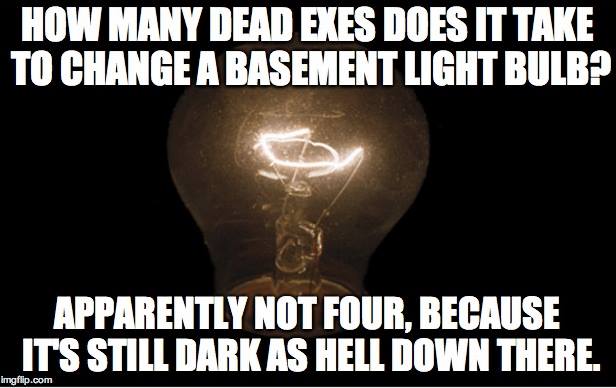
Image courtesy of Randy Heinitz via Flickr Creative Commons.
How do we sell our stories? That is the big question. It is the reason for craft classes and editing and cover design and agents and editors and all the time on social media. And while platforms and covers and algorithms do matter, there is one tried and true way to sell more books.
Write a great story.
And not just any story, but a story that hooks from the very beginning and only continues to hook deeper.
Think of great stories like concertina wire.
The danger of concertina wire is not just in one hook, but hundreds. And it isn’t even in the hundreds of hooks. It is the tension created by the coiled structure. If a person is snagged even a little, every effort to break free (turning a page for resolution) only traps the victim deeper in a web of barbed spines.
Now granted, this is a morbid visual, but y’all are writers and there is a good reason our family doesn’t like us talking at the dinner table.
So I was researching sucking chest wounds today and, hey, pass the spaghetti please?
Moving on…
We’ve talked about this before, but it bears repeating. Many new writers finish their first novel and I know as an editor that odds are I am going to chop off the first 50-100 pages. We dream killers editors call this the fish head. What do we do with fish heads? We toss them (unless you are my weird Scandinavian family who makes fish face soup out of them).

Image courtesy of David Pursehouse via Flickr Creative Commons
Often, when I go to do this kind of cutting, new writers will protest. “No, but you need this and the story really gets going on page 84.”
My answer? “Then let’s start on page 84.”
Too many stories fall flat because they lack the barbs necessary for snagging the modern reader who has the attention span of an ADD hamster with a meth habit. Additionally, a lot of us writers fall into bad habits of assuming readers are stupid, that they need all kinds of brain holding to “get” what we are talking about which means we not only lack barbs…but necessary tension.
I will prove readers are really smarter than we give them credit for 😉 …
Hooking with a Problem
One morning, on my way to take Spawn to school, as I stopped at my stop sign at a major business highway, a VW van passed at 50 mph and another car pulled out in front. BAM! Car parts, exploding glass, tearing metal, right in front of me. One driver screaming because his legs were crushed and he was pinned. All of this in less than 15 seconds.
Do you think I was hooked?
Did I need to know the history of the drivers, where they were going, what had the one driver so distracted that he would pull out into traffic? Did I need a description of the balmy, normal morning and a weather report? A description of the pale azure sky? Nope.
Now this is an extreme example, but it shows how even in life, we stop everything in light of a problem. A scream, a child crying, someone falling over a curb. We immediately halt everything.
Good fiction always begins with a problem because that is ALL fiction really is. Prose and descriptions and symbol and theme are all various delivery mechanisms…for PROBLEMS.
I cannot count the number of new manuscripts I read where the author spends most of her opening playing Literary Barbies. We really don’t care as much about your protagonist’s flaming red hair as much as we care about that warrant for her arrest. This is drama not a doll house.
Go look at books that have launched to legends and you will see this.
Andy Weir’s The Martian:
I am pretty much f**ked.
That is my considered opinion.
F**ked.
Six days into what should be the greatest two months of my life, and it has turned into a nightmare.
We don’t start the book on Earth or in the astronaut program at NASA. We don’t even start when they land on Mars and hint that trouble eventually will come. Nope. Weir tosses us face first into a problem.
Hooking With a Question

I have a mantra that all modern novelists must live and die by.
Resist the urge to explain.
One of the reasons emerging writers get that fish head is they do a lot of flashbacks and explaining and “setting up” the story and they are unwittingly destroying the single strongest propulsion mechanism for their story—curiosity.
If we look at the opening page of Harry Potter and The Sorcerer’s Stone, the opening paragraph has a small character hook but six lines down we read:
The Dursleys had everything they wanted, but they also had a secret, and their greatest fear was that somebody would discover it.
When we craft any story, we are wise to harness the power of human nature. Humans are curious. Heck, we are downright nosey. Imagine sitting at a Starbucks and prepping the computer to write. Two women sit nearby chatting and one has obviously been crying (hooking with a problem). We might eavesdrop a little, arrange Post Its, set out our lucky thesaurus but the second one of the women says, “He would kill me if he ever found out.”
There went the writing.
Then we would be doing “research” 😀 .
Hooking with Question and Character

What the HELL, HANNAH?
Sometimes the problem or question isn’t so obviously stated and there is a lot left between the lines. We humans love to fill in the blanks, so LET US.
We will use an example from my all-time favorite book Luckiest Girl Alive.
I inspected the knife in my hand.
“That’s the Shun. Feel how light it is compared to the Wustof?”
I pricked a finger on the blade’s witchy chin, testing. The handle was supposed to be moisture resistant, but was quickly going humid in my grip.
First of all, this is a great opening line. It hooks, but then it leads to another hook and another and another. The character is testing the blade. Why? A blade being moisture resistant obviously is a plus if you are planning on stabbing someone because less chance of slippage (Stuff Writers Know).
Who is she planning to stab? How is she planning on using the blade? What has her so nervous her hands are going moist?
And on PAGE ONE we realize the protagonist is out looking at knives with her fiancé. Why? That is unusual. China? Normal. Curtains? Normal. Knives? Not normal.
Especially since in paragraph FOUR, we read:
I look up at him, too: my fiancé. The word didn’t bother me so much as the one that came after it. Husband. That word laced the corset tighter, crushing organs, sending panic into my throat with the bright beat of a distress signal.
Don’t Eat Your Own Bait
There are any number of reasons we as writers are failing to gut hook with our stories and often it is because we are falling prey to the very bait that is going to trap a reader. Problems bother us (because we are human) so we feel a need to “lead up to” something bad. We don’t like questions. We want to know…which is why we feel the urge to explain.
Just know that that clawing feeling inside that is driving you to pad the text is a good sign you are probably doing something right 😉 . For more on how to hook the reader, I am once again holding my First Five Pages class with upgrades available to get me shredding through your pages to help you start strong and stay strong.
The tricks we use to hook on page one we should continue to use until the final page. Coil that barbed story all around and no escape until you’re cut free.
Ain’t no rest for the wicked 😉 .
What are your thoughts?
I LOVE hearing from you! And REMEMBER TO SIGN UP TO HANG OUT AND LEARN FROM HOLLYWOOD PRODUCER JOEL EISENBERG! Details are below. This is EIGHT hours with one of the hottest producers in Hollywood teaching everything from craft to how to SELL what we write! Recordings are included with your purchase for FREE!
And to prove it and show my love, for the month of FEBRUARY, everyone who leaves a comment I will put your name in a hat. If you comment and link back to my blog on your blog, you get your name in the hat twice. What do you win? The unvarnished truth from yours truly.
I will pick a winner once a month and it will be a critique of the first 20 pages of your novel, or your query letter, or your synopsis (5 pages or less).
SIGN UP NOW FOR UPCOMING CLASSES!!!
Remember that ALL CLASSES come with a FREE RECORDING so you can listen over and over. So even if you can’t make it in person? No excuses! All you need is an internet connection!








42 comments
9 pings
Skip to comment form
In the first draft, I had too much “flavoring” for world-building. Thanks Kristen for your Hooked Class, and for pointing me toward Les Edgerton.
Love this! I’m sharing 🙂
Yes! Hooks! It’s something I definitely don’t get right in the first draft.
I write my first draft knowing I’m going to need to cut it to pieces before it is worth reading. The hooks are in there, but I do a good job of burying them. I don’t think my story would be interesting to anyone but me until I start to get my act together in the second draft.
Reblogged this on Writer's Treasure Chest and commented:
Kristen Lamb published a post on how to hook a reader and never let go. Thanks for your excellent guidance, Kristen!
Thank you for the belly laugh with Hannah!! Great great info as always, but between Hannah and the fish head thing…I’m set for the day!
Maria/TigerXGlobal
Reblogged this on authorkdrose.
Yes! This! Readers are smart. Don’t hand-hold.
Tweeted!
Yes, hook us and real us in slowly. But please, hook us without resorting to the Dragon Ball Z conundrum of constantly needing bigger and bigger fights.
Well looks like I’m gonna have to sharpen my machete. The car collision example was perfect though, gave me one of those “ah-ha” moments. Love it!
Love this – great advice! Thanks, Kristen!
However, not everyone starts with 50 pages of setup and backstory. I heard this particular piece of advice, and somehow it translated as starting in the middle of the story to avoid it entirely–but screwed up the entire story in the process. So now, if I come up with something, I expect it to be in the middle and write backwards to find the beginning.
Great advice! I’ve taken some notes so that I remember to apply it next time I write something – particularly ‘resisting the urge to explain’ – I’m definitely guilty of that! 🙂
I enjoyed this post. Most of your opinions are valid. I guess it depends on the reader and what the writer is trying to say. And yes, we are quite like a bunch of hamster’s with meth addictions sometimes…
One of my favorite hooks is the beginning of One Hundred Years of Solitude, a man reflecting on his life as he faces the firing squad.
This is another of you blog posts that really rings true and I thank you for doing these for us free of charge when they are truly writer’s gold nuggets of wisdom. I know what you’re saying here is true because I’m a musician as well as a writer. I’m a singer/songwriter and will never forget my recording engineer in a Nashville studio telling me one day, “This song could be good, Jini. It’s catchy. But it needs a hook.” I asked him, “What’s a hook, Dave?” He said, “It’s when you take the most catch phrase of the song and put it write up front. In the case of this song of yours, it’s the first line of the refrain. Play and sing that and then segue into the first verse. The reason for this is that new songs are listened to first on car radios most of the time. The listener will give you just eight seconds to hook them and, if they’re not hooked they simply change the station. I hear you to
oops, hit wrong key above. I hear you telling us that the written story is just like a song; if it doesn’t have an up front hook, it won’t have an audience. At least this is certainly just as true for new authors as it is for new songwriters. Authors like Stephen King, Tom Robbins, and J.R.R Tolkien can get away with boring us for the first 50 pages. The rest of us can’t get away with that.
Author
BEAUTIFUL ANALOGY and thanks so much for taking time to share this with us. I had never thought of that before so YES!!!!
Good points were made. When I pick up a book I only read the first page or paragraph. At that point I decide if the rest of the book is worth reading. eg. Hawaii by James A. Michener…That’s exactly what got me started on how I evaluate a book. If I was hooked on the first page–the rest was worth reading.
I liked the analogy of hooks. As a reviewer, if I’m not hooked in the first couple of pages, it’s hard going. I’ll be attempting my own novel rewrite very soon. I am looking for all the craft tips to be a successful storyteller.
Kristen, I don’t know if you’ll get this msg or not, but the last several times I’ve tried to comment on your blog, I get stopped by word press. The msg says I am not currently signed on to my given email address, and it asks me for the password. The problem is…I AM signed onto the email address, so I am concerned about putting my password in. I was scammed a few months ago, despite my being very cautious, so I’ve just not commented when I wanted to. Do you have any suggestions? I really liked this post.
Author
I see your comment. ???? And thank you for being so persistent!
That’s great advice! Thanks for sharing, Kristen
Reblogged this on ugiridharaprasad.
Kristen I Amazed to have come here and there are some ways to learn through.
Thanks, shall visit again,
Fond Regards,
Shiva
These tips have really got me thinking. I’m currently watching one of the Star Trek series and I guess you could say, without exception, episodes start with a problem the crew has to face. But in a recent episode, I felt the story line and pace was impeded by unnecessary back story. It lost its initial hook. Can relate this to what I’m reading at the moment too, Small Gods by Terry Pratchett, can’t put it down! Thank you!
This spoke to me and admonished me to cut brutally. I need more faith in my reader. Thanks for the great post.
Reading this has finally made me cave to rewriting my beginning again. I thought I’d finally cracked it – cut 3,000 words and a character – but perhaps I’ll do better if I write almost only the moments of action and tension, as if I’ve only got one chapter to get it all out, and then build on it from that…
Reblogged this on Don Massenzio's Blog and commented:
Check out this post from Kristen Lamb’s blog on hooking your readers
Could you possibly expand on your comment of not just having one hook, but hooks throughout the story? I know what you mean, but I’m interested in hearing what you have to say about how to do that throughout an entire novel.
Author
I teach it in my class, but an excellent reference for this is “Hooked” by Les Edgerton 😀 .
Reblogged this on Shaman Elizabeth Herrera.
Reblogged this on Judi Lynn and commented:
A great explanation of how to hook and keep a reader. Thought I’d share.
Great advice. Someday I hope I won’t have to rewrite my opening 110 times before it’s “right.”
Wow! I was hooked by your Blog! Thank you so much…loved the insight!
Author
😀
Reading this I wonder if I have to cut the first 9 chapters of my book! Ow!
A note of appreciation after my years as one of your readers. For some time now, I’ve looked forward to and enjoyed your ranting and raving. Always somewhere deep within each of your pieces is a strongly held opinion as well as a lesson. The opinion is usually easy, while the lesson not so much so. Either you’ve smacked me in the face or left to wander and think. Thanks for the memories.
Author
Awww, thank you Oliver! I appreciate the comment SO much!
Even if I wasn’t a writer I’d enjoy reading your blog. Thanks for the tips!?
I found the ‘start with a problem’ thing much easier when I realized it didn’t have to be THE problem to begin with. It’s ok to start with one, maybe smaller problem, and work your way up to the we-are-all-going-to-die problem. Bigger hooks as you thrash your way into the coil of wire 🙂
Love the new look! (Or is it just a change at this end?)
By the by, I seem to be missing the announcements of the winners of your 5-page evisceration award lately – where am I not looking?
Great article and very specific to my story.
Quick Question: Are all the previous articles on the original website still available? I have links to loads of them – will the links still work?
Thanks – or “damn” depending on your answer 🙂
Author
Yes they will redirect here 🙂 . THANK YOU!
[…] via Three Ways to HOOK a Reader & Never Let GO — Kristen Lamb’s Blog […]
[…] via Three Ways to HOOK a Reader & Never Let GO — Kristen Lamb’s Blog […]
[…] Source: Three Ways to HOOK a Reader & Never Let GO […]
[…] Why not pay Kirsten a visit? […]
[…] Kristen Lamb shares about the importance of hooking the reader (and not letting go). Kristen is going to be speaking at the Romance Writers of New Zealand […]
[…] humans are wired to remember the story. It makes us connect using more than one part of the brain. I talk a lot about the neuroscience of […]
[…] on the Agta, Jonathan Gottschall’s incredible thesis or even the work and findings of author Kristen Lamb all point to the same […]
[…] I don’t care if it’s a novel, a podcast, a documentary, or a food vlog on YouTube. We must differentiate our content, and drama is the best human bait there is. It will hook hard, and hook DEEP. […]
[…] I don’t care if it’s a novel, a podcast, a documentary, or a food vlog on YouTube. We must differentiate our content, and drama is the best human bait there is. It will hook hard, and hook DEEP. […]